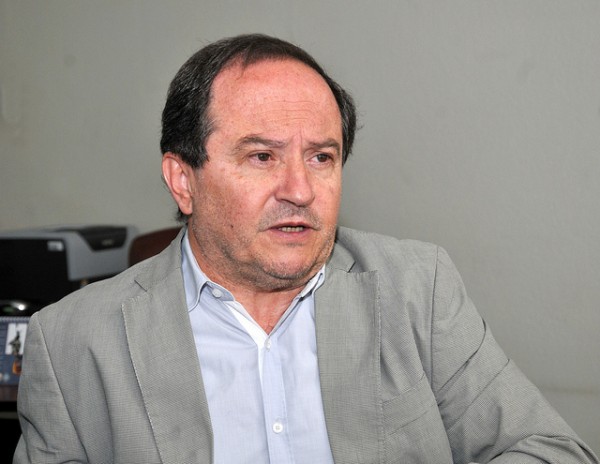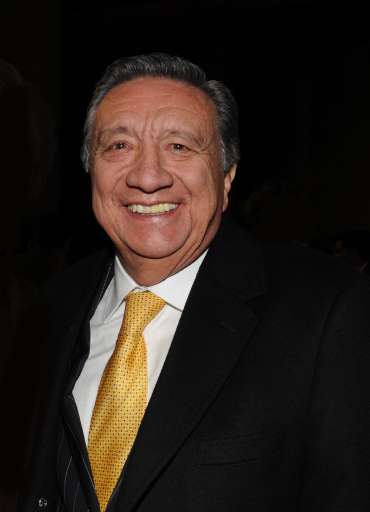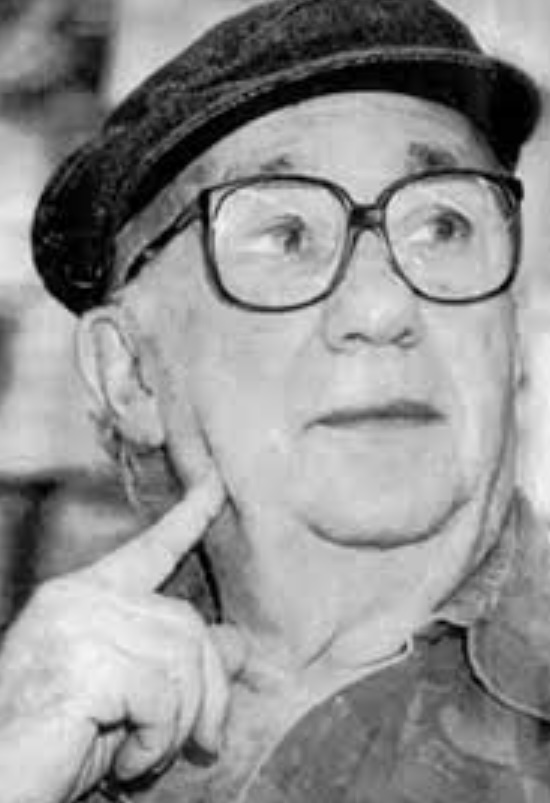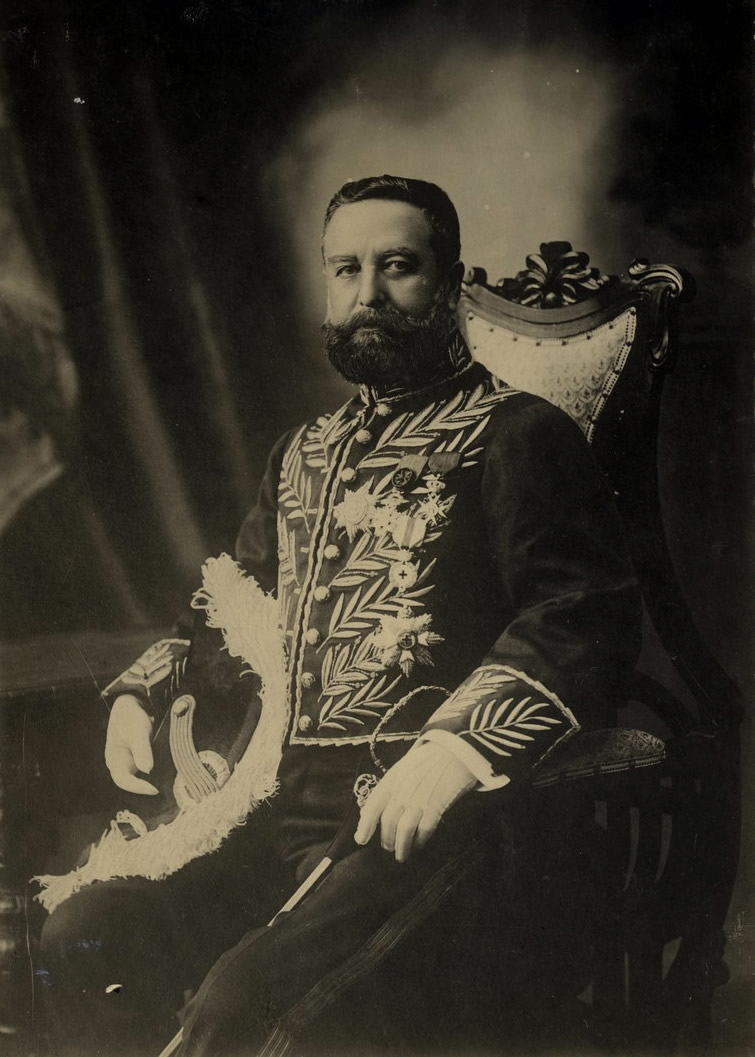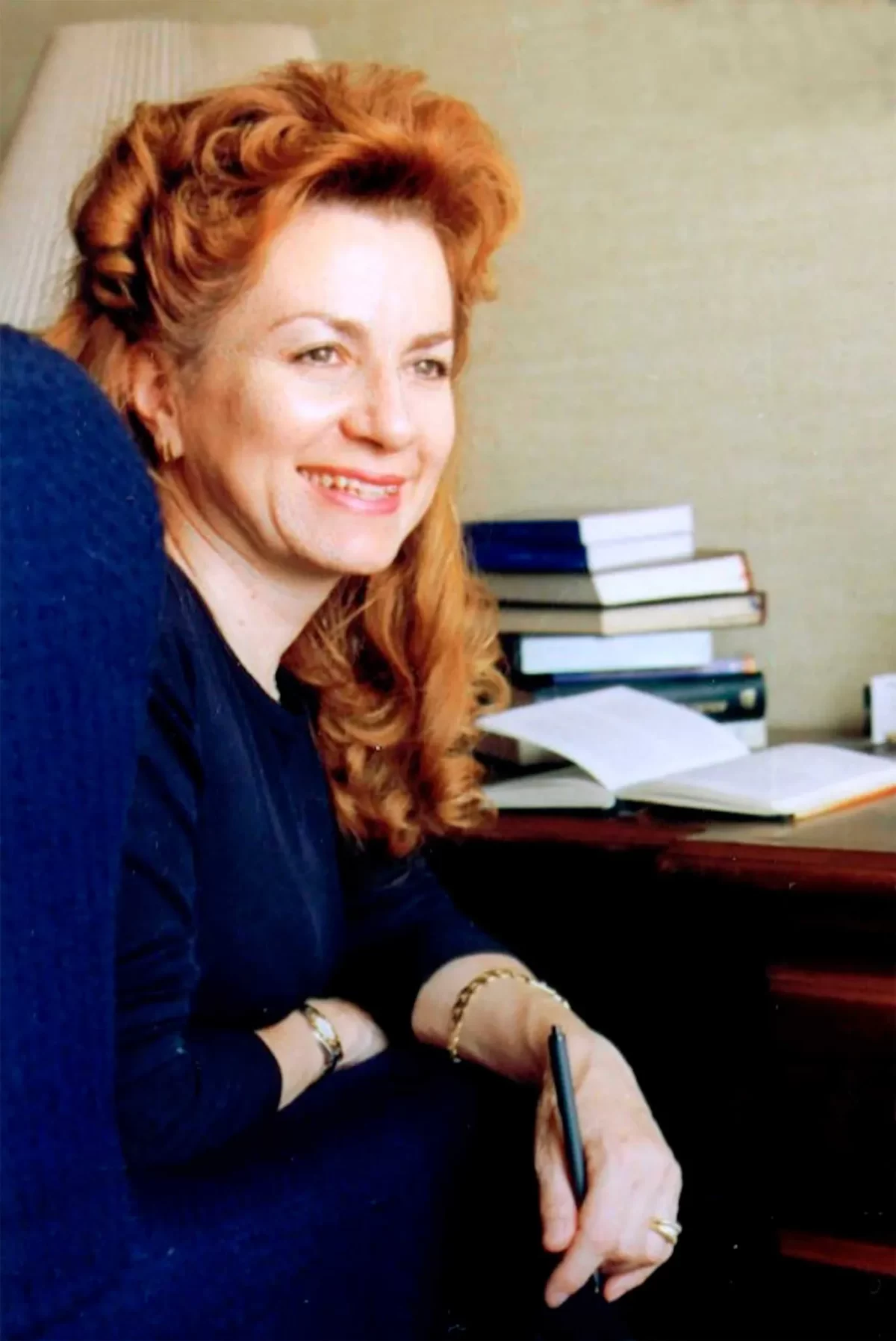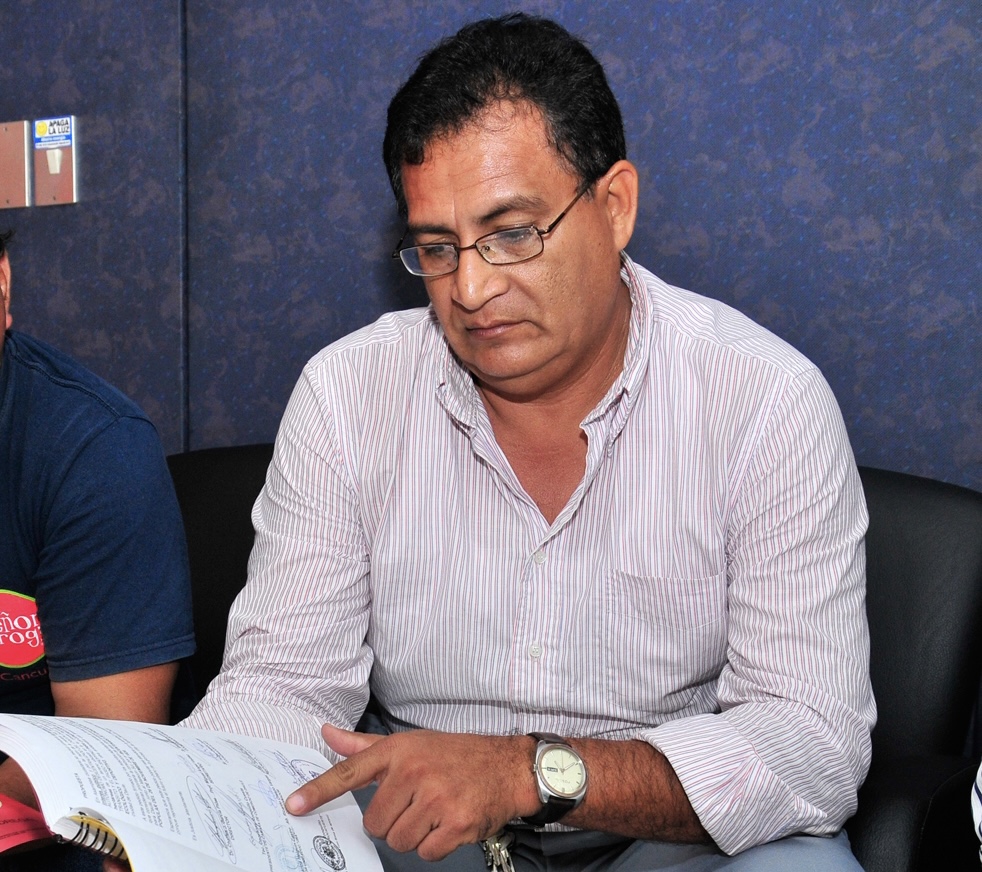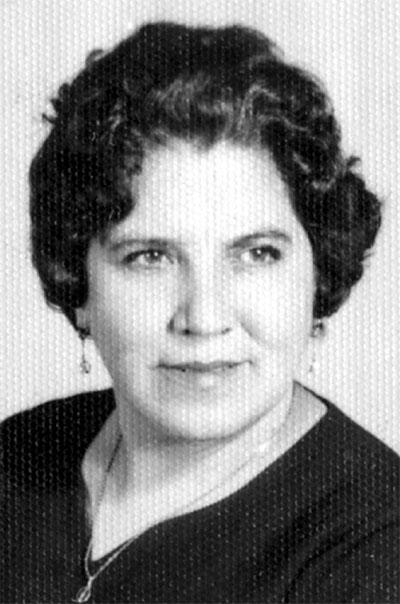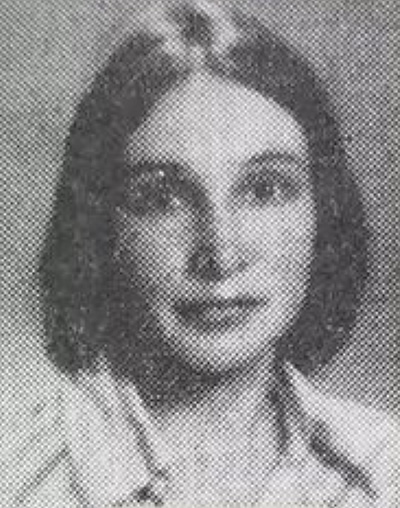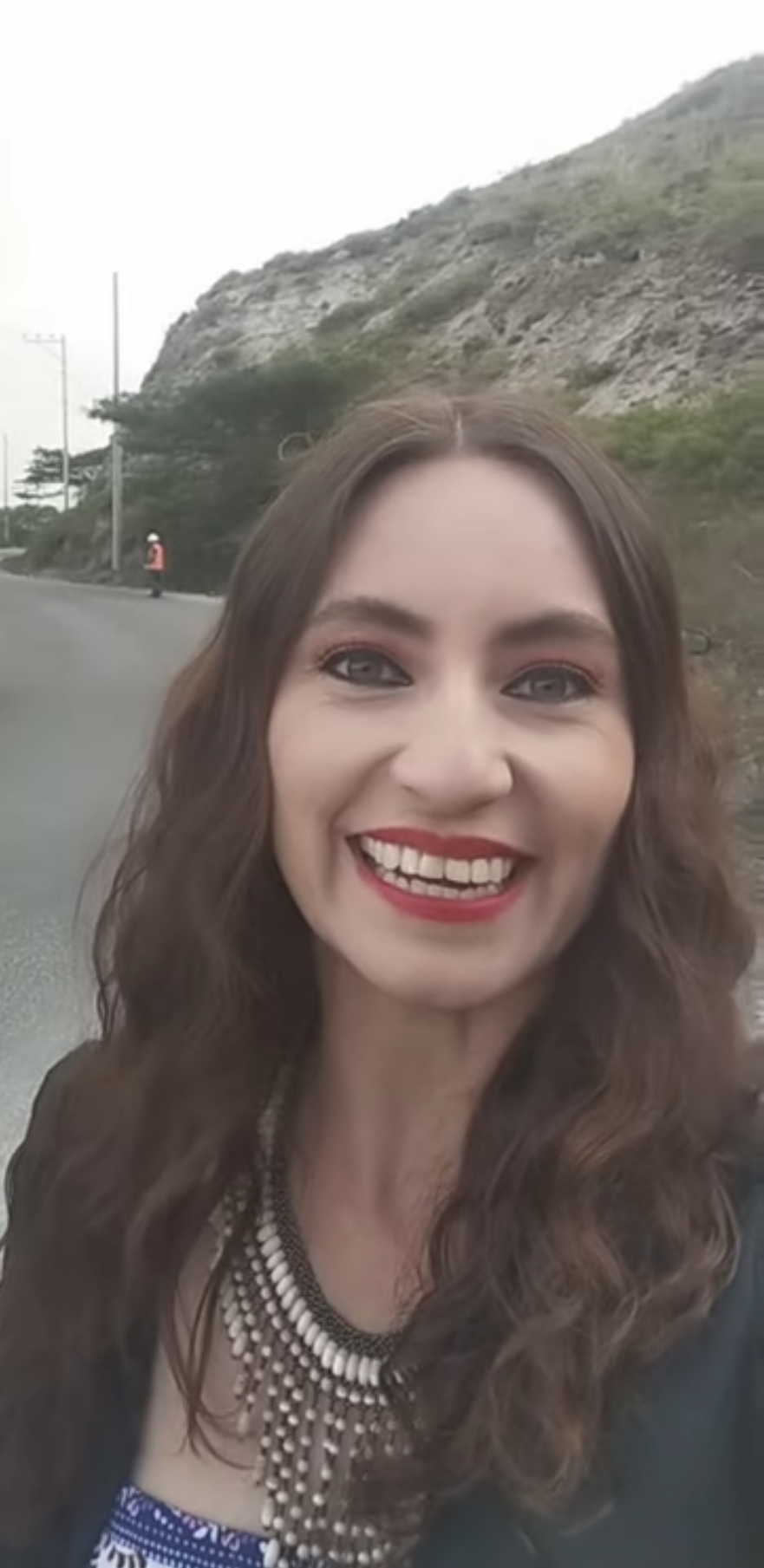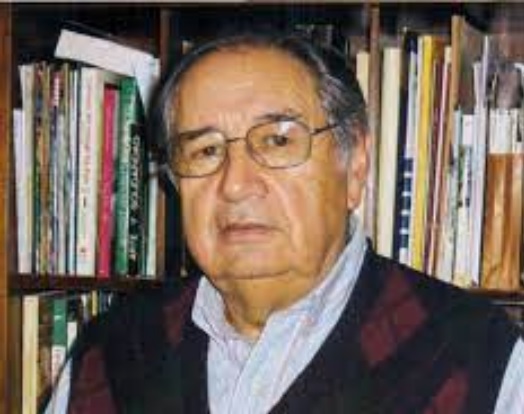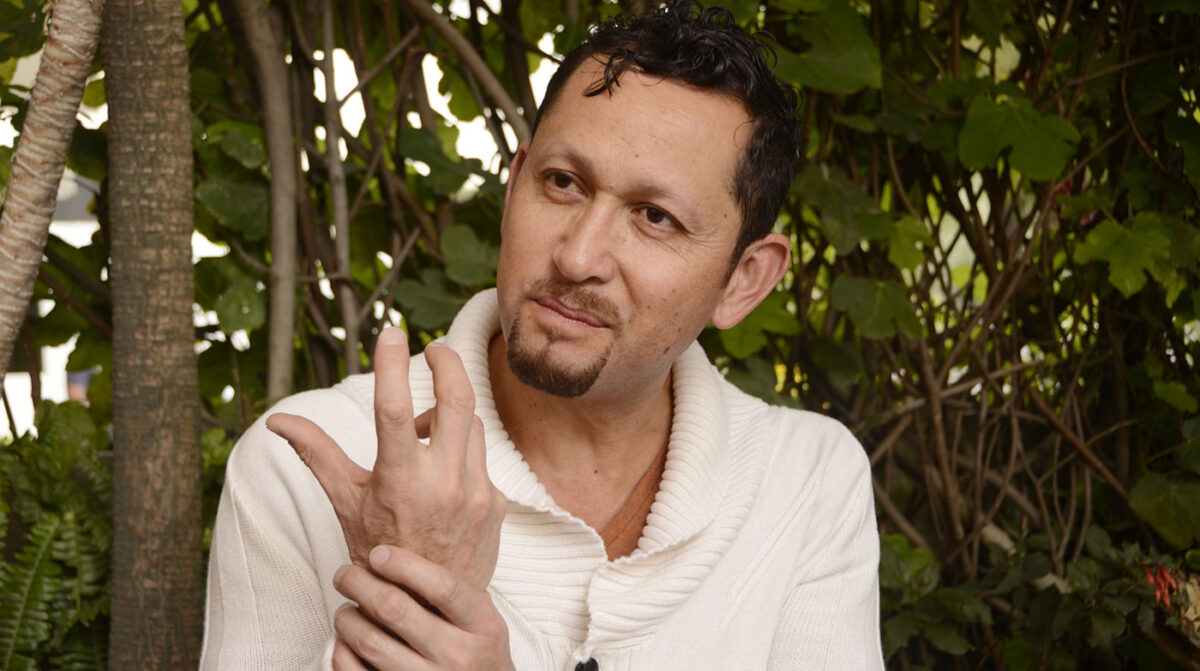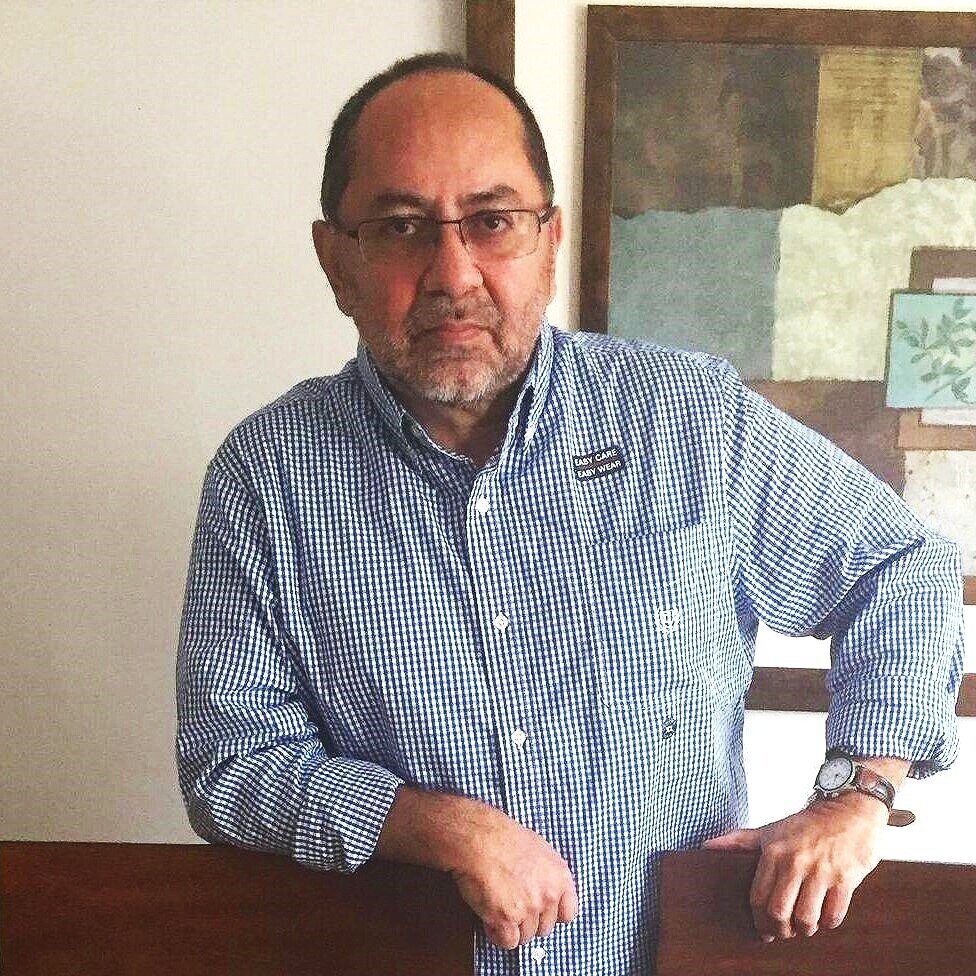Javier Ponce Cevallos (Quito, April 28, 1948) is an Ecuadorian author, journalist, and politician. Additionally, he spent many years working as an editorial writer for the newspapers El Universo and Hoy. He has held various public posts, including Minister of Defense (2008–2012) and Minister of Agriculture, Livestock, Aquaculture, and Fisheries (2012–2017), both held under President Rafael Correa’s administration. In 1982, he published his first book of poetry, “A espaldas de otros lenguajes,” followed by “Escrito lejos” (1984), “Los codices de Lorenzo Trinidad” (1984), “Texto en ruinas” (1999) and “Afuera es la noche” (2000). In 1990, he wrote his first novel, “El insomnio de Nazario Mieles,” followed by “Es tan difícil morir” (1994), and “Resígnate a perder” (1998) whose plot revolves around a character named Santos Feijó, the director of Quito’s Historical Archive, and his two loves, a woman named Nadja and a transvestite prostitute known as “Caramelo.”
Continue reading “Javier Ponce”Month: October 2022
Marco Antonio Rodríguez
Marco Antonio Rodríguez (Quito, 1941) is an Ecuadorian short story writer and essayist. He is a numerary member of the Ecuadorian Academy of Language. His most famous book is a short story collection entitled “Historia de un intruso” which consists of 10 short stories. In 1967, it won the best Spanish language book in the Leipzig International Book Fair (Germany), where other participants included Mario Vargas Llosa, Julio Cortázar, and Carlos Fuentes. He has also written over 20 books on visual arts. In 2020 he published a collection of all his stories in a book entitled “Todos mis cuentos,” which includes his previous collections: “Cuentos del rincón,” “Historia de un intruso,” “Un delfín y la luna,” and “Jaula.”
Continue reading “Marco Antonio Rodríguez”Jorge Rivadeneyra
Jorge Rivadeneyra Altamirano (Riobamba, 1930) is an Ecuadorian novelist, short story writer, essayist, columnist, and professor. His first novel, “Ya está amaneciendo,” appeared in 1957. He has written several books of short stories, including: “Encrucijada” (1960), “Ismata” (1993), and “Chacamandaca”(2015). Since 2002, he has lived in Caracas, Venezuela, where he has taught doctoral students at Venezuela’s Central University as a Professor of Social Sciences.
Continue reading “Jorge Rivadeneyra”Paulo de Carvalho Neto
Paulo de Carvalho Neto (Simão Dias, Sergipe, Brazil, September 10, 1923 – Rio de Janeiro, August 17, 2003) was a Brazilian anthropologist, ethnologist, folklorist, writer, novelist, and essayist. Because of his research and study of oral traditions in Ecuador and other countries he is considered the progenitor of “folklore” as a field of study in Latin America. He lived outside of Brazil for many years, including Paraguay, Uruguay, Chile, Ecuador (for 6 years), and the United States (for 17 years) where he taught at UCLA. In January 1960 he was appointed Cultural Attaché of the Brazilian embassy in Quito, Ecuador’s capital with the mission of organizing a Center for Brazilian Studies there. He collaborated with Benjamín Carrión of the House of Ecuadorian Culture (CCE), and together with poet Jorge Enrique Adoum and artist Oswaldo Guayasamín founded the Ecuadorian Institute of Folklore. He taught classes at the Faculty of Philosophy and Literature of the Central University of Ecuador. He also co-founded, and directed, the Revista del Folklore Ecuatoriano [Ecuadorian Folklore Magazine], published by the House of Ecuadorian Culture. Several of his books on folklore theory, including “The Concept of Folklore” and “Folklore and Psychoanalysis” were translated into English by Jacques M.P. Wilson and published by University of Miami Press in the late 60’s and early 70’s. In 1972, he published a neo-Indiginest novel entitled, “Mi Tío Atahualpa” [My Uncle Atahualpa], about the Ecuadorian Indians in the highlands of Quito, which has been translated into Portuguese, Finnish, German, and Dutch.
Continue reading “Paulo de Carvalho Neto”José Peralta
José Peralta Serrano (Chaupi-Yunga, Gualleturo, present day Cañar, 1855 – Quito, December 27, 1937) was an Ecuadorian lawyer, politician, diplomat, educator, writer and journalist who founded several liberal journals in the 19th and early 20th century. He is considered the greatest ideologue of the Liberal Revolution. His works, such as “¿Ineptitud o traición?” (1904), “Tipos de mi Tierra” (1910), “El régimen liberal y el régimen conservador juzgados por sus obras” (1911), and “Eloy Alfaro y sus victimarios” (1951) are an invaluable part of Ecuadorian literature’s heritage. He was an ally of Eloy Alfaro (President of Ecuador from 1895 to 1901 and from 1906 to 1911) and held various diplomatic and public posts during Alfaro’s rule. He was one of the drafters of the 1906 constitution. He was proposed by Alfaro as a candidate to succeed him as president of the republic, which he declined in order to avoid violence from conservatives factions.
Continue reading “José Peralta”Rocío Durán-Barba
Rocío Durán-Barba (Quito, 19??) is an Ecuadorian writer, novelist, poet, essayist, journalist, and painter. Her creative pursuits have taken her to Paris, where she has resided for many years. Proficient in both Spanish and French, Rocío has authored an impressive collection of over 50 books. Her debut novel, “París sueño eterno” (1997), garnered attention and was subsequently translated into French by the renowned translator Claude Couffon in 2003, titled “Ici ou nulle part.” Alongside her writing career, Rocío Durán-Barba worked as a consultant for UNESCO in Paris, leveraging her expertise to contribute to the organization’s mission. She also served as an advisor for UNESCO at the Ecuadorian Embassy. In addition to her literary achievements, Rocío is an accomplished painter, showcasing her artistic expressions through exhibitions held in various countries.
Continue reading “Rocío Durán-Barba”Charles J. García Plúas
Dr. Charles J. García Plúas (Daule, 1964 – April 5, 2020) was an Ecuadorian writer, editor, biographer, historian, professor, researcher, and cultural promoter. He was a Language and Spanish professor with a doctorate in Education Sciences. He belonged to various cultural organizations in Ecuador. He authored over twenty books that narrate the history of towns settled on the banks of the Daule River, including Balzar, Colimes, Santa Lucía and others. He served as the Subdirector of Culture and Education of the Municipality of the Daule canton. In 2020, the Guayas chapter of the House of Ecuadorian Culture named a virtual festival in his honor. In 2021, the new Municipal Cultural Center (Centro Municipal de Cultura) of Daule, a three-story building which will house a museum, library, and more, was named “Dr. Charles García Plúas.”
Continue reading “Charles J. García Plúas”Etelvina Carbo Plaza
Etelvina Carbo Plaza (Daule, March 18, 1834 – Lima, March 22, 1902) was an Ecuadorian poet. Her poems were well-regarded by her contemporaries and form part of some national poetry anthologies. A national poetry contest bearing her name is organized by Sociedad Literaria Etelvina Carbo Plaza, a Daule-based literary society founded in 2016 by writer Cecilia Corella Ramírez. This organization is affiliated with the World Academy of Literature, History, Art and Culture (Mexico). An elementary school in the city of Daule also bears the name Etelvina Carbo Plaza. In 2019, Charles J. García Plúas published a biography of her.
Continue reading “Etelvina Carbo Plaza”Lola Orbe Carrera
Lola Orbe Carrera, born Luz María Dolores Orbe Carrera (Otavalo, March 31, 1920 – Quito, August 16, 2004) was an Ecuadorian writer, poet, teacher, director of schools and colleges in the province of Imbabura. In 1954, UNESCO awarded her a scholarship to Uruguay and Argentina. She wrote poetry, essays, hymns, biographies, among others. She admired and corresponded with the Chilean poet Gabriela Mistral.
Continue reading “Lola Orbe Carrera”Mariana Cristina García S.
Mariana Cristina García Salvador (Quito, June 8, 1955 – Quito, 1985) was an Ecuadorian poet, essayist and journalist. Her poetry works include: “De Alfa a Omega” (1972), “Cantos Transparentes” (1974), “De la voz Innumerable” (1977), “Con la prisa de la vida en las manos” (1983), and “Voces para recordar” (1987, published posthumously). As a journalist, she collaborated with some of the country’s newspapers and magazines in the 1970s and 1980s, including El Comercio and Diario Expreso.
Continue reading “Mariana Cristina García S.”Juliana Espinosa R.
Juliana Espinosa R. (Ibarra, 1986) is an Ecuadorian writer and social communicator. Her literary debut novel “Las Manos de Alondra” (2017) remains her only published work to date. The story revolves around a young girl who confronts the profound loss of her mother and sets off on a transformative journey of self-discovery. Espinosa skillfully explores themes of family, love, resilience, and personal growth, captivating readers with her sincere and engaging narrative. “Las Manos de Alondra” serves as a testament to Espinosa’s potential as a distinct and promising author.
Continue reading “Juliana Espinosa R.”Manuel J. Herrera
Manuel J. Herrera, or Manuel de Jesús Herrera, (Azogues, Cañar, Ecuador) authored a book entitled “Luz y tinieblas del alma” [Light and Darkness of the Soul], which in 1999 made it to the list of 100 best books by authors from Cañar. Almost nothing is known about this author and no copies of the first edition are known to exist. However, an original copy of the second edition, printed in Buenos Aires, Argentina in 1930, was found to reside in the National Library of Teachers in Buenos Aires. In 2018, after a written request by Ecuadorian researchers, the National Library of Teachers sent a certified photocopy of the book to the Catholic University of Cuenca who delivered it to the Cañar chapter of the House of Ecuadorian Culture (in Azogues, Ecuador) on February 2, 2018 for research and distribution purposes.
Continue reading “Manuel J. Herrera”Antonio Sacoto Salamea
Antonio Sacoto Salamea (Biblián, Cañar, Ecuador, November 30, 1932) is an Ecuadorian literary critic, essayist, and university professor. He has a PhD from Columbia University in New York. He has served as Director of Latin American Studies and Dean of the College of Romance Languages at the City University of New York (CUNY). He has written around 20 books about Ecuadorian and Latin American literature. His first book was “The Indian in the Ecuadorian novel” (1967), wherein he analyzed the works of Jorge Icaza and Juan León Mera. The municipal library of the city of Azogues is named in his honor. He has been a member of the Ecuadorian Academy of Language since 2012.
Continue reading “Antonio Sacoto Salamea”Pedro Artieda Santacruz
Pedro Artieda Santacruz (Quito, 1964) is a psychologist, novelist, short story writer, journalist, essayist, literary critic, and professor. In 2003, he published a study titled “La homosexualidad masculina en la narrativa ecuatoriana” [Male Homosexuality in Ecuadorian Narrative], which received the Manuela Saénz Prize in 2004. His first novel, “Nadie sabe con certeza” [Nobody Knows For Sure], was published in 2001, followed by the psychological science fiction novel “La última pared roja” [The Last Red Wall]. In 2011, he released a collection of short stories titled “Lo oculto de la noche” [The Hidden Night], and in 2013, his third novel “Bajo el hábito” [Beneath the Habit] received an honorable mention at the Joaquín Gallegos Lara Prize for Best Novel of the Year. This novel tells the story of a transgender Franciscan living in a monastery in Quito. Pedro Artieda Santacruz has contributed to newspapers such as El Comercio and Hoy, and his articles on literature, cinema, and gender have been published in various magazines including Diners, El Búho, and Vistazo, among others.
Continue reading “Pedro Artieda Santacruz”Fernando Itúrburu
Fernando Itúrburu Rivadeneira (Guayaquil, 1960) is a writer, poet, essayist, literary critic, translator, and renowned scholar of Latin American literature. He is a Spanish professor in the Languages department at SUNY Plattsburgh where he has taught Latin American colonial and 20th century literatures, Cultural Studies, Women’s Studies, and Creative Writing. Often in collaboration with American professor Alexis Levitin, also of SUNY Plattsburgh, he has translated various Ecuadorian poets from Spanish to English. In 2009, they published “Tapestry of the Sun,” a bilingual anthology of Ecuadorian poets, which includes first-time translations of various Ecuadorian poets, largely from Guayaquil. Their translations of Ecuadorian poetry have also appeared in several literary journals. He was a member of the Guayaquil literary group Sicoseo. He has been a member of the House of Ecuadorian Culture since 1984.
Continue reading “Fernando Itúrburu”
